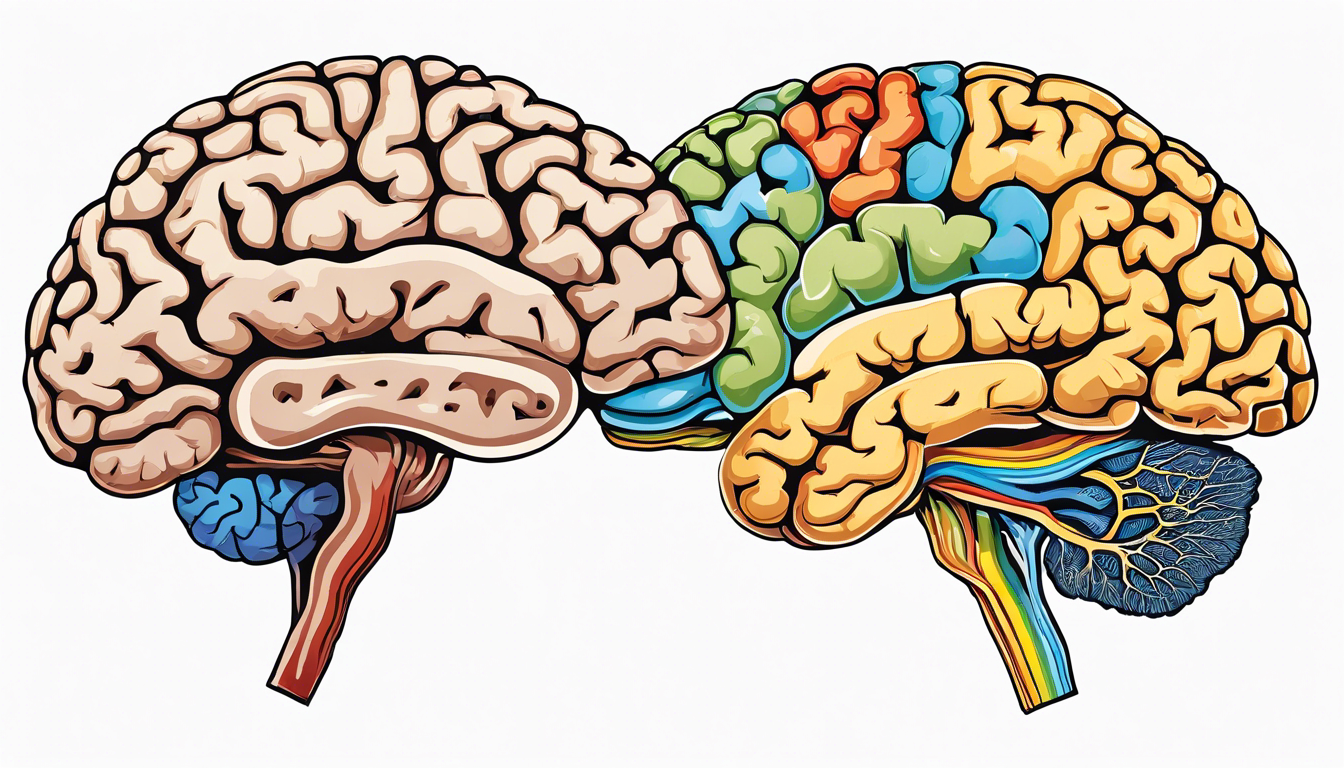Understanding Mental Models: A Key to Decision Making and Problem Solving
A mental model is essentially an individual’s internal representation of the external reality they perceive. It acts as the underlying framework guiding our thoughts, ideas, and decision-making processes. This internal model is shaped by our experiences, perceptions, and understanding of the world. It influences how we interpret situations, make decisions, and identify opportunities in our environment.
The Influence of Mental Models
Mental models play a crucial role in shaping our understanding of complex systems and experiences. They allow us to create hypothetical scenarios and predict outcomes based on different courses of action. By organizing and simplifying information into manageable concepts, mental models enhance our ability to comprehend and navigate the world around us.
Importance in Decision Making
In the workplace, having a clear mental model of your role and its interconnections with others can significantly impact your effectiveness. Understanding how your contribution aligns with the broader objectives of your organization is essential for personal growth, relationship building, and decision-making.
Role of Experience
Our past experiences heavily influence the mental models we develop. These models serve as filters through which we perceive and interpret new information, guiding our thoughts and behaviors. They help us anticipate potential consequences of our decisions and adapt to changing environments.
Evolution of Mental Models
Mental models are dynamic and continually evolving. As we accumulate knowledge and experiences, our perspectives and perceptions of the world evolve accordingly. Our understanding becomes more nuanced and sophisticated over time, enabling us to make better-informed decisions and deepen our comprehension of complex systems.
Limitations and Biases
It is important to acknowledge that mental models are subjective interpretations of reality and are inherently biased. While they provide a framework for understanding, they may not offer a comprehensive or objective view of the world. Embracing diverse perspectives and incorporating multiple mental models can help us gain a more holistic understanding of complex phenomena.
Predictive Power of Mental Models
Mental models are instrumental in decision making due to their predictive nature. By simulating various scenarios and anticipating potential outcomes, they equip us with the foresight to make informed choices. Through mental simulations, we can assess the likely consequences of different actions and adjust our decisions accordingly.
In conclusion, mental models serve as powerful tools for simplifying complexity, enhancing decision-making, and fostering a deeper understanding of the world. By leveraging diverse perspectives and continually refining our mental models, we can navigate challenges, adapt to changing circumstances, and make informed decisions in various aspects of our lives.
Exploring the Concept of Belief: Understanding Core Beliefs and Cognitive Behavioral Therapy

Beliefs are fundamental to our perception of the world and ourselves. Often ingrained from childhood and reinforced over time, core beliefs shape our thoughts, emotions, and behaviors. They can stem from various experiences, ranging from early life events to significant traumas faced in adulthood. Despite the lack of concrete evidence, individuals tend to cling to their core beliefs, filtering out conflicting information that challenges these beliefs.
Challenging Core Beliefs
The influence of core beliefs can manifest in dysfunctional behaviors and negative emotions. Individuals may fixate on aspects of their lives that align with these beliefs, reinforcing a self-perpetuating cycle of negativity. Cognitive Behavioral Therapy (CBT) offers a structured approach to challenge and modify these maladaptive beliefs. By examining the underlying thought patterns and assumptions driving these beliefs, individuals can gain insight into their cognitive processes and work towards fostering more adaptive beliefs.
Distinguishing Ideas from Facts
It is crucial to recognize that core beliefs are subjective interpretations rather than absolute truths. The intensity of one’s conviction in a belief does not necessarily correlate with its accuracy. By acknowledging that beliefs are fluid constructs influenced by personal experiences and perceptions, individuals can adopt a more flexible and open-minded approach to self-exploration and growth.
Unpacking Beliefs through Self-Reflection
Identifying and unraveling core beliefs requires introspection and self-awareness. Delving into automatic thoughts and assumptions can serve as a starting point for untangling deeply rooted beliefs. Some individuals may find this process challenging or emotionally distressing, necessitating a gradual progression from addressing immediate thoughts to exploring deeper core beliefs.
The Role of Cognitive Behavioral Therapy
CBT provides a structured framework for challenging and reconstructing core beliefs. By encouraging individuals to examine the evidence supporting their beliefs and consider alternative perspectives, CBT facilitates cognitive restructuring and promotes adaptive coping strategies. Through collaborative efforts with a therapist, individuals can cultivate a more balanced and constructive mindset, leading to improved emotional well-being and behavior.
Embracing Growth and Transformation
Embracing the fluidity of beliefs and the potential for change is essential in fostering personal growth and transformation. By engaging in self-reflection, challenging entrenched beliefs, and cultivating self-compassion, individuals can embark on a journey of self-discovery and empowerment. The willingness to explore and reshape core beliefs is a pivotal step towards enhancing emotional resilience and embracing a more fulfilling life.
In conclusion, understanding the intricate relationship between core beliefs, automatic thoughts, and emotional responses is key to fostering psychological well-being and personal development. By embracing the transformative power of cognitive restructuring and self-exploration, individuals can navigate the complexities of belief systems and embark on a journey towards greater self-awareness and adaptive coping strategies.
Understanding Automatic and Intrusive Thoughts: Unraveling the Complexities of Cognitive Processes

Delving into the realm of cognitive behavior therapy (CBT) unveils the intricate interplay of automatic thoughts and intrusive thoughts in shaping our emotional responses and mental well-being. Both types of thoughts serve as pivotal components in understanding and addressing cognitive distortions and psychological distress.
Unveiling Automatic Thoughts
Automatic thoughts, inherent to the core of CBT theory, are swift, effortless cognitions that arise spontaneously in response to specific situations. Ranging from rational to dysfunctional, these thoughts lack in-depth reflection and typically appear rational on the surface. Cognitive distortions often underlie dysfunctional automatic thoughts, leading individuals into what is commonly referred to as “thought traps.”
By scrutinizing the intensity and impact of these automatic thoughts on emotional states, individuals can gain insight into underlying cognitive patterns and maladaptive behaviors. Recognizing these patterns allows for targeted interventions that aim to challenge and modify detrimental thought processes through cognitive restructuring techniques.
Decoding Intrusive Thoughts
On the other hand, intrusive thoughts manifest as unwanted and distressing ideas or impulses that persist despite efforts to suppress or control them. These intrusive thoughts can evoke feelings of doubt, shame, fear, and anxiety, disrupting daily activities and mental processes. Intrusive thoughts are often associated with anxiety disorders, Obsessive-Compulsive Disorder (OCD), and Post-Traumatic Stress Disorder (PTSD), yet they can manifest independently as well.
Different categories of intrusive thoughts—such as obsessional intrusions, worry intrusions, and trauma-related intrusions—demand tailored therapeutic approaches to address the underlying emotional distress and psychological impact. From confronting traumatic memories with a therapist to employing CBT techniques to alleviate anxiety-induced intrusive thoughts, individuals can navigate the complexities of intrusive thoughts and reclaim control over their mental well-being.
Navigating Cognitive Distortions and Enhancing Self-Awareness
Engaging in self-reflection and introspection is essential in unraveling the complexities of automatic and intrusive thoughts. By identifying recurring thought patterns, recognizing cognitive distortions, and fostering self-awareness, individuals can embark on a journey of cognitive restructuring that promotes adaptive beliefs and emotional resilience. Through collaborative efforts with therapists and mental health professionals, individuals can develop coping strategies to mitigate the distress caused by intrusive thoughts and foster a positive mindset grounded in cognitive flexibility and emotional regulation.
Embracing Growth Through Cognitive Behavioral Therapy
As individuals explore the labyrinth of automatic and intrusive thoughts, they uncover the transformative power of cognitive behavioral therapy. By challenging dysfunctional thought patterns, confronting cognitive distortions, and integrating mindfulness and self-compassion practices, individuals can cultivate a more balanced and adaptive mindset. Through a holistic approach that combines cognitive restructuring with emotional regulation techniques, individuals can navigate the complexities of cognitive processes, enhance self-awareness, and foster personal growth and resilience.
In conclusion, the exploration of automatic and intrusive thoughts unveils the complexities of cognitive processes and their profound impact on emotional well-being. By embracing the transformative potential of cognitive behavioral therapy and enhancing self-awareness, individuals can dismantle cognitive distortions, confront intrusive thoughts, and pave the way for growth, resilience, and emotional well-being.
